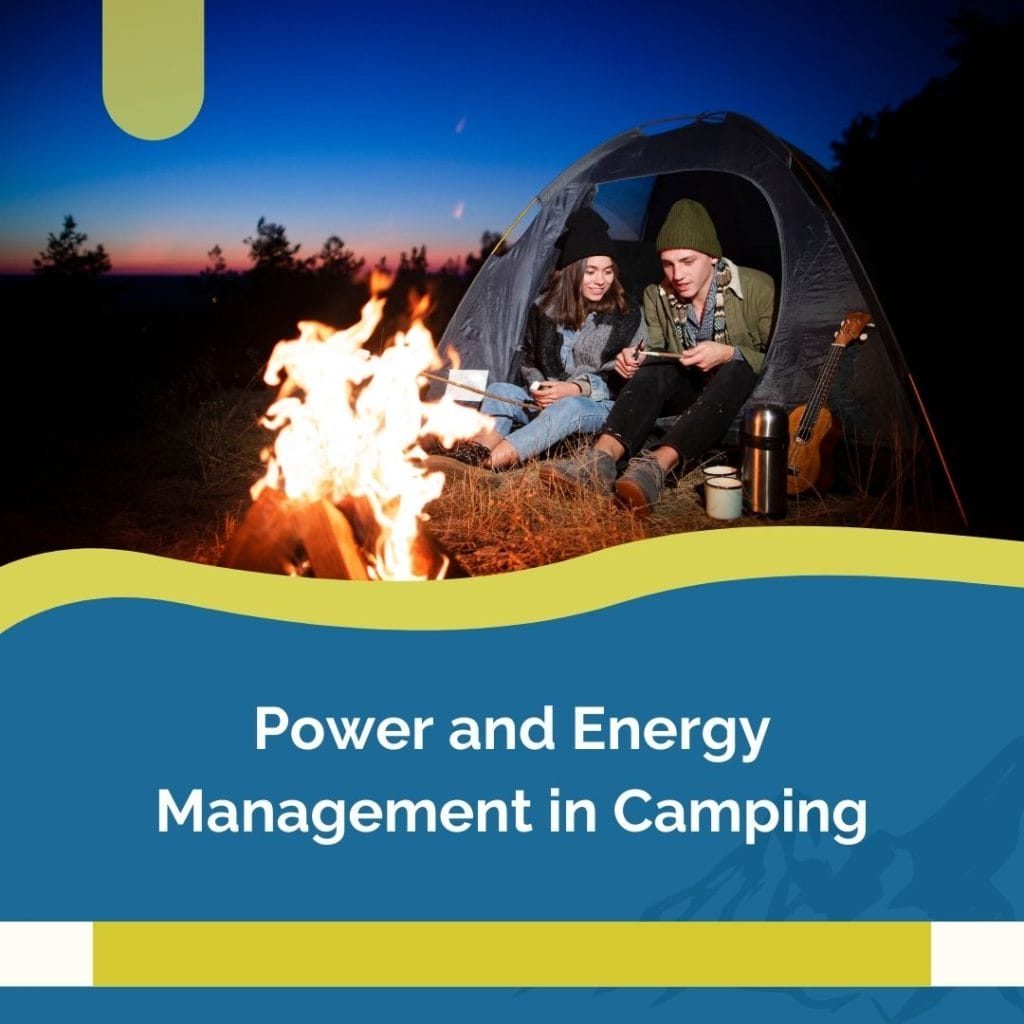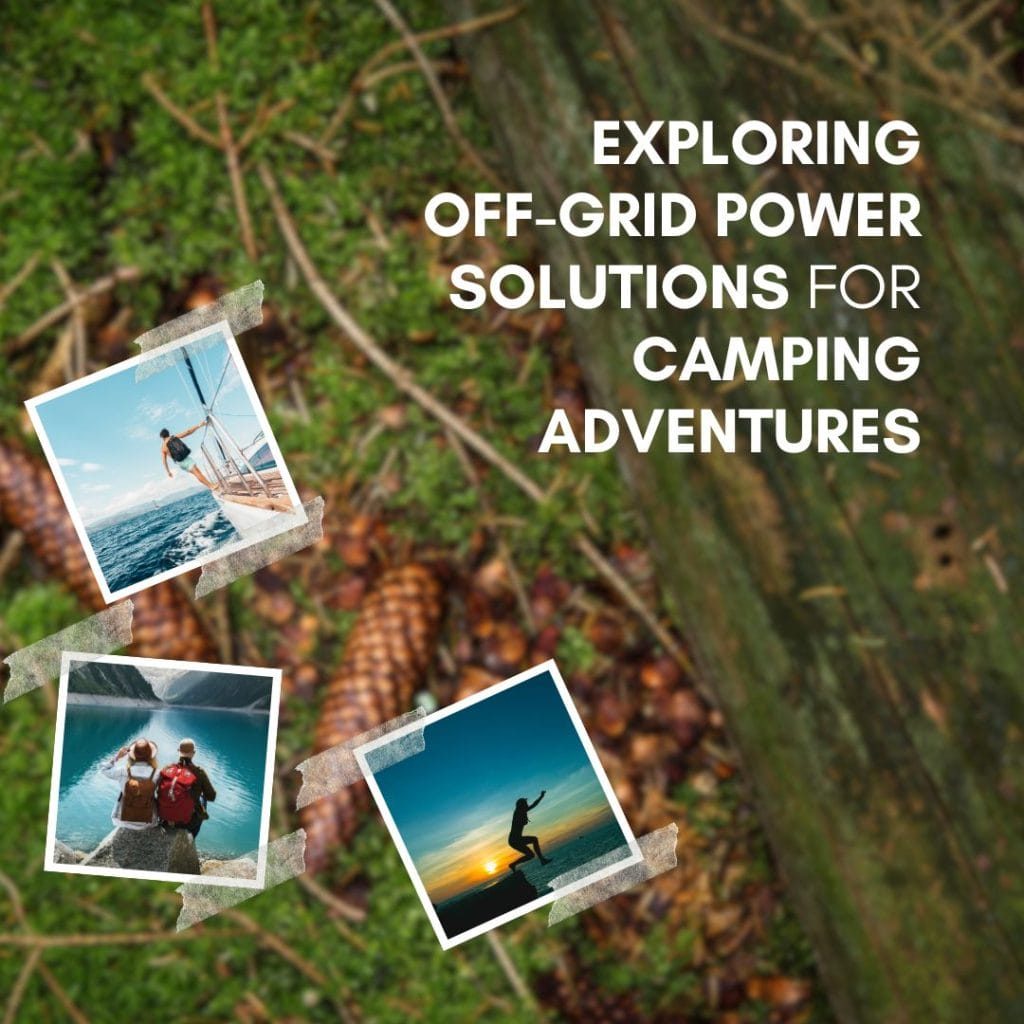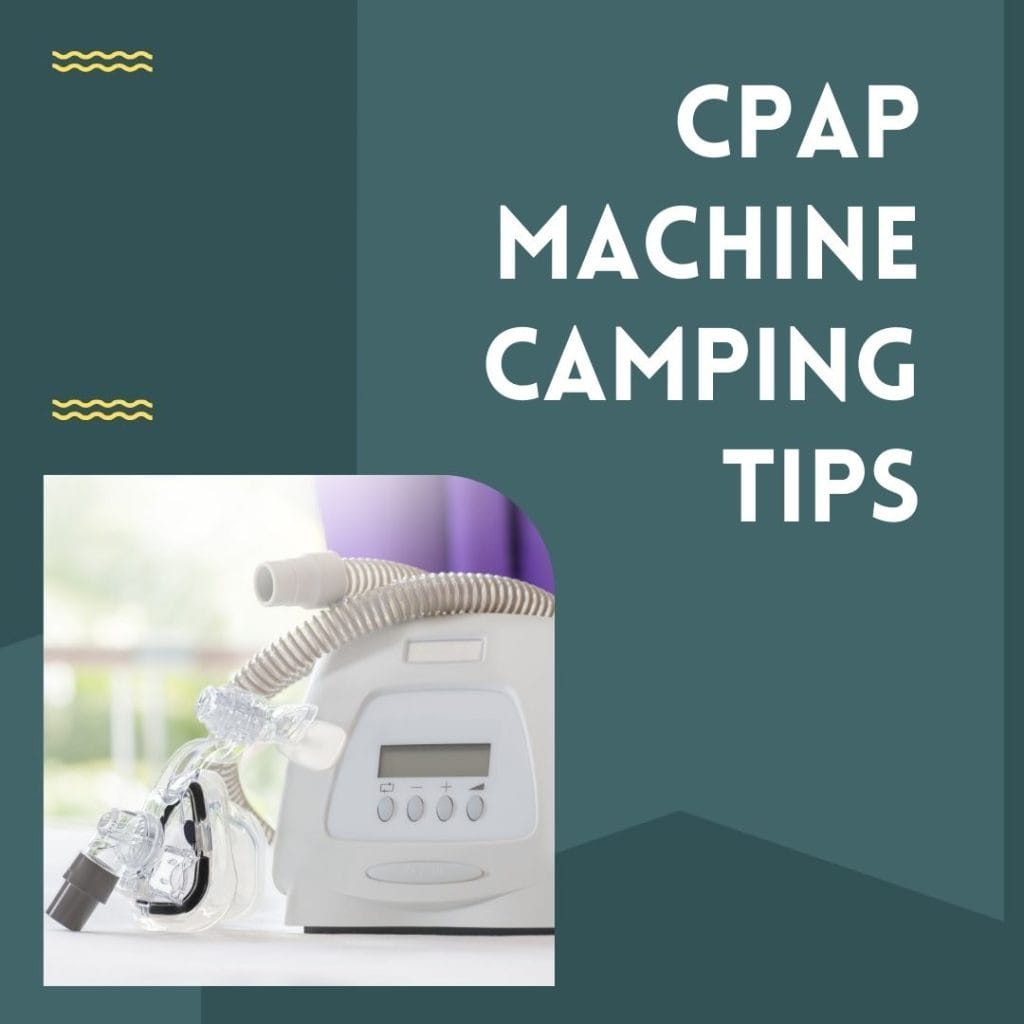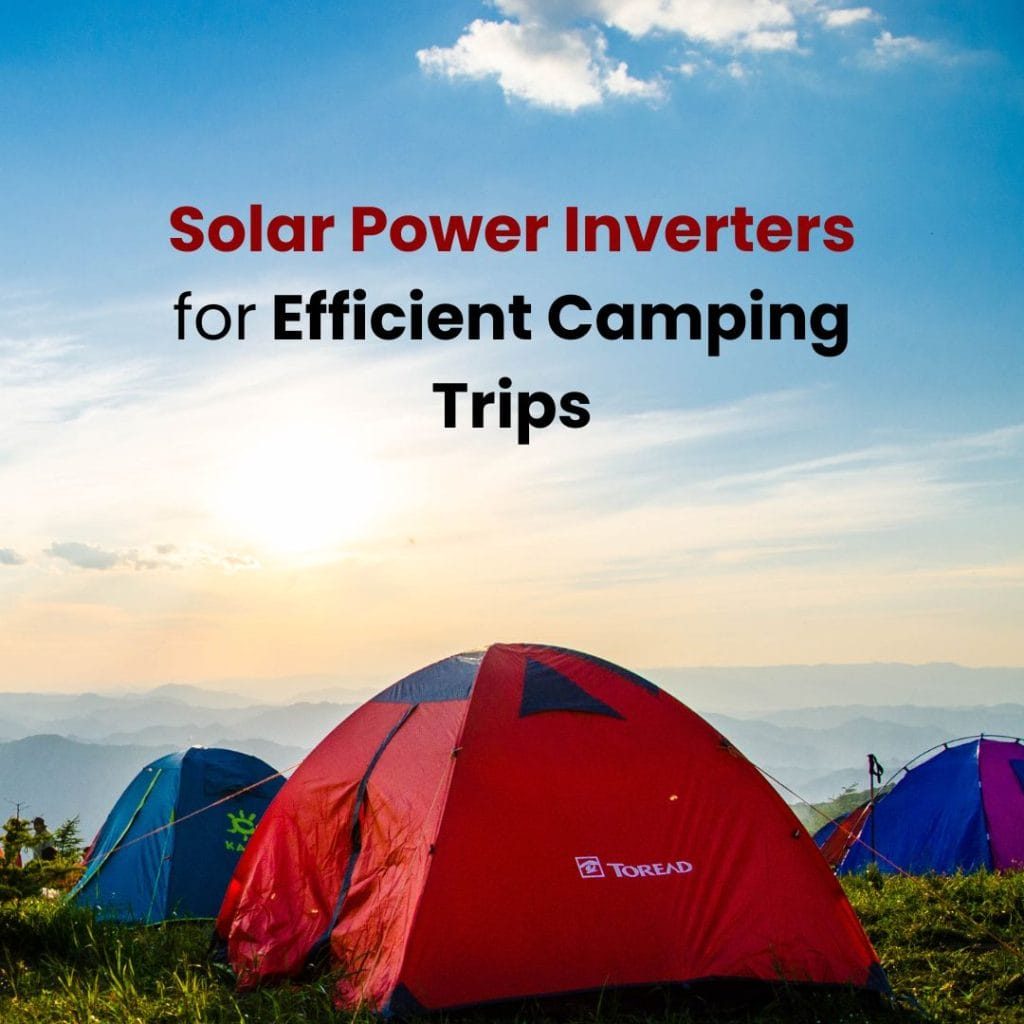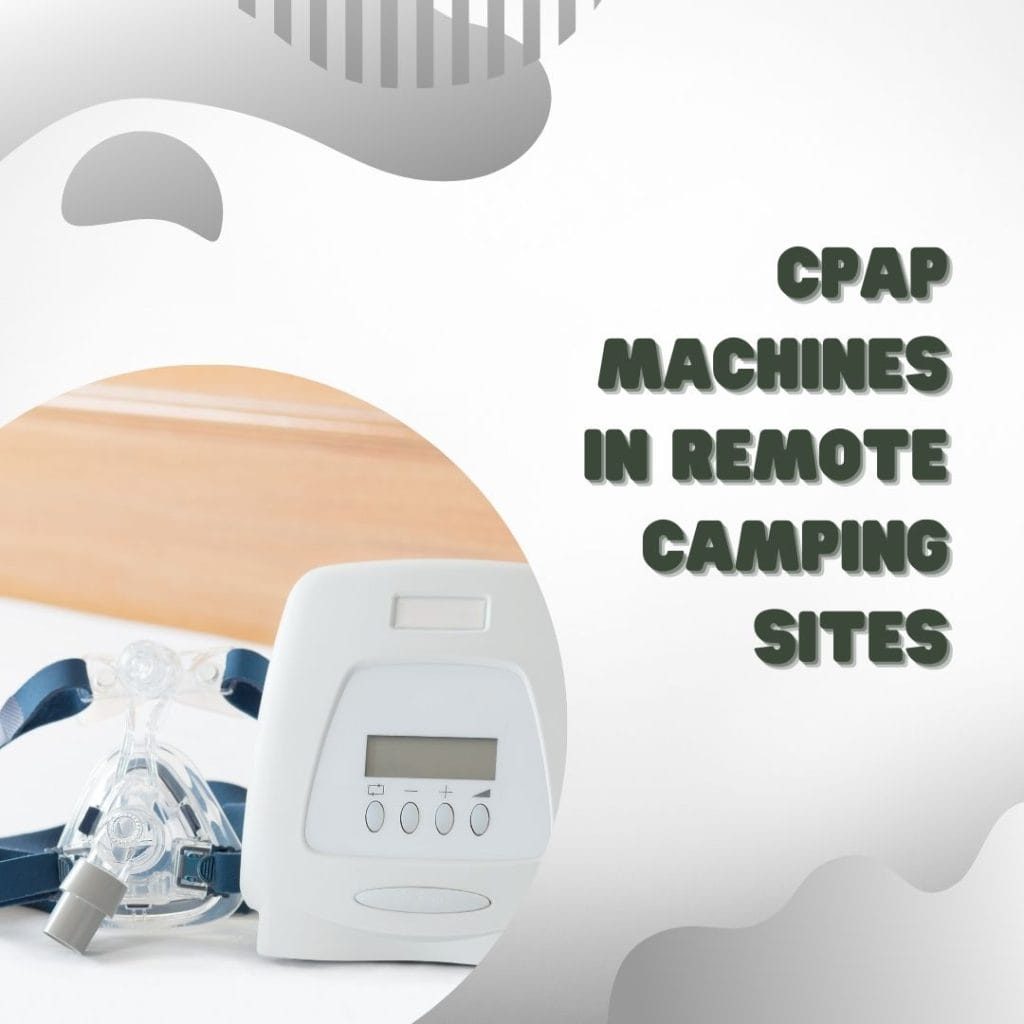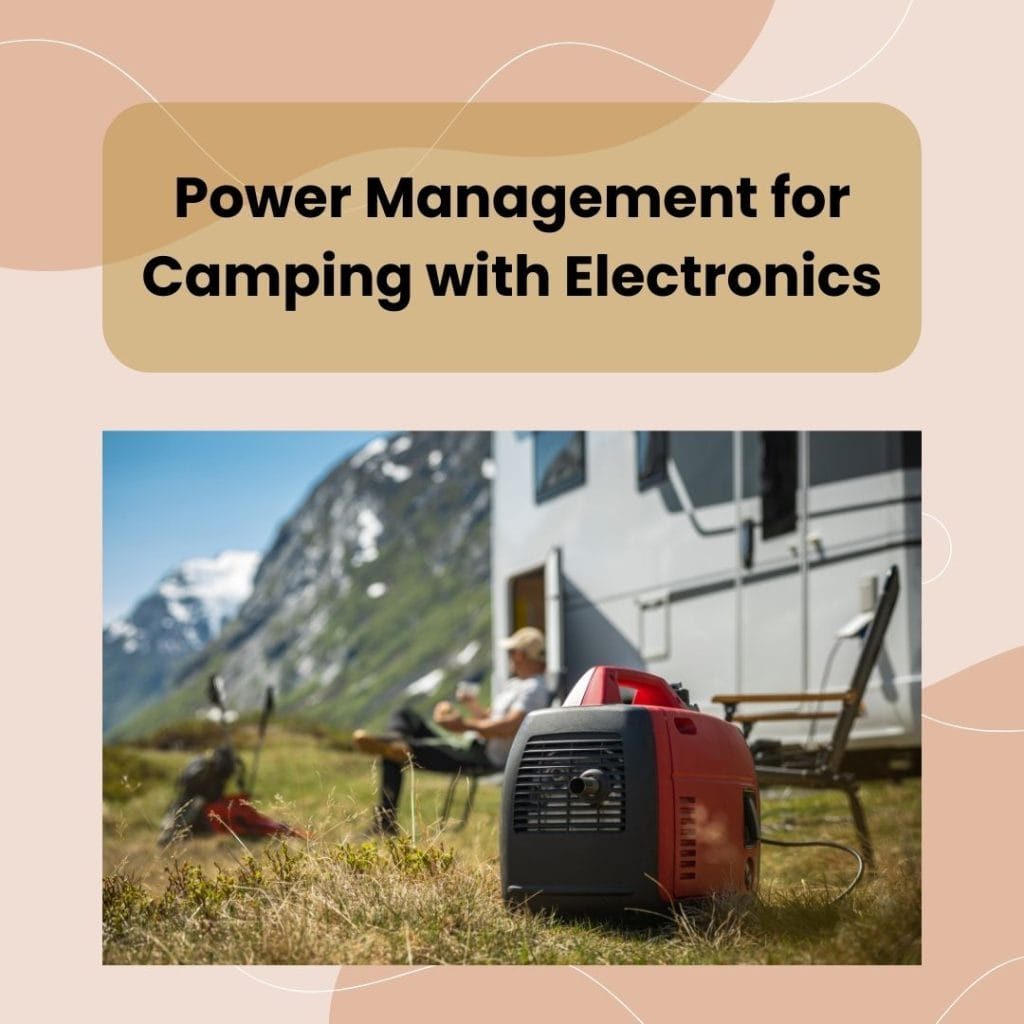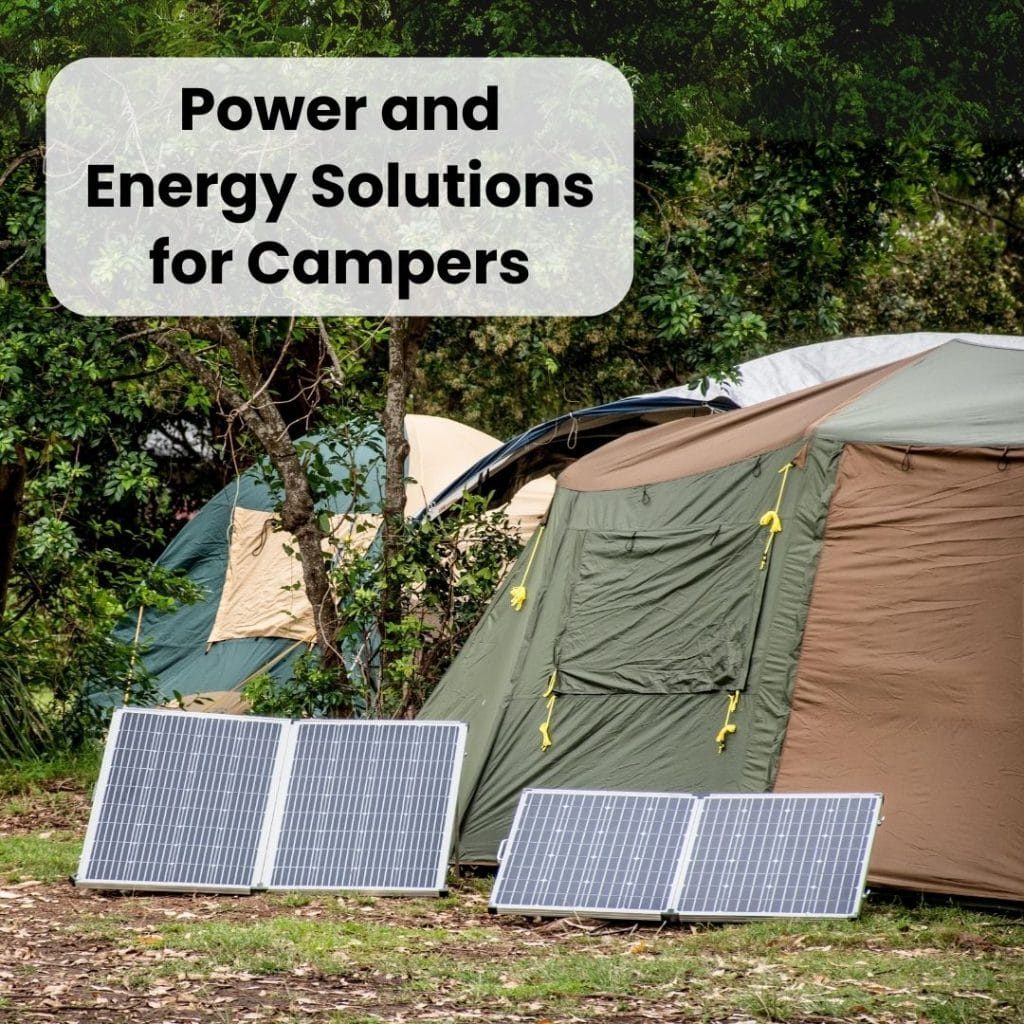Camping, an activity cherished by many, offers a chance to reconnect with nature and escape the hustle and bustle of everyday life. However, in our increasingly connected world, the need for reliable power and energy solutions while camping has never been more pronounced. Whether it’s for lighting up a dark forest night, keeping communication devices running, or powering essential medical equipment like CPAP machines, the right energy solution can make all the difference in your camping experience.
By understanding the range of power solutions available, you can make informed decisions that enhance your camping experience, keeping you safe, connected, and comfortable. Let’s embark on this journey to discover the perfect blend of nature and technology, ensuring your next camping trip is memorable for all the right reasons.
Generators for Camping: Quiet, Compact, and Efficient Energy Solutions
In the serene backdrop of nature, the last thing any camper wants is a noisy generator disrupting the peace. This is where quiet generators come into play. Quiet generators are specifically designed to operate with minimal noise, making them ideal for camping environments where the tranquility of nature is a significant part of the experience.
Noise pollution in camping areas not only affects the quality of your outdoor experience but can also disturb wildlife and other campers. Quiet generators typically employ advanced technology such as sound-dampening materials, mufflers, and efficient engines to significantly reduce their noise output. The measure of a generator’s noise is given in decibels (dB), and a quiet generator usually operates at a range between 50 to 65 dB, which is comparable to the noise level of a normal conversation. This feature ensures that you enjoy the benefits of power without the usual racket associated with traditional generators.
Small Generators and Their Benefits for Campers
Small generators are a boon for campers who prioritize portability and ease of use. These compact units are perfect for powering essential items like lights, small appliances, and charging devices. The benefits of opting for a small generator for camping are numerous:
- Portability: Their lightweight and compact design make them easy to transport and set up, which is essential when you’re moving around different camping sites.
- Fuel Efficiency: Smaller generators are often more fuel-efficient compared to larger models. They are designed to provide power for essential needs, thus conserving fuel and reducing running costs.
- Lower Noise Levels: Generally, smaller generators tend to operate more quietly than their larger counterparts, aligning well with the need for quiet in camping environments.
- Ease of Use: With simpler operating mechanisms, small generators are user-friendly, making them suitable even for camping novices.
Overview of Top Generators for Campers
When it comes to choosing the best generators for camping, there are several factors to consider, including power output, fuel type, noise level, and portability. Here’s an overview of some top generators that are well-suited for camping needs:
- Honda EU2200i: Known for its reliability and ultra-quiet operation, this inverter generator is a favorite among campers. It provides 2,200 watts of power and operates at an incredibly low noise level of 48 to 57 dB.
- Yamaha EF2000iSv2: Another top contender in the quiet generator category, this model is compact, lightweight, and provides 2,000 watts of power, with a noise level of 51.5 to 61 dB.
- Westinghouse iGen2200: A great balance between efficiency and affordability, this inverter generator is quiet, fuel-efficient, and generates 2,200 peak watts.
- Jackery Portable Power Station Explorer 500: Ideal for those who prefer a battery-powered solution, this solar-ready generator is silent and perfect for powering small devices.
- Champion 3400-Watt Dual Fuel RV Ready Portable Inverter Generator: Offering versatility with dual fuel capability, this generator is slightly more robust, ideal for those needing more power without sacrificing portability.
Each of these generators offers unique features that cater to different camping styles and needs. Whether you prioritize silence, compactness, or power capacity, there’s a generator out there that’s perfect for your next outdoor adventure.
Portable Power Solutions: Essential Gear for the Modern Camper
In an age where technology is an integral part of our lives, staying connected and powered up, even in the wilderness, is increasingly important. This is where power banks, a staple in portable power solutions, come into play for camping enthusiasts.
Power banks are compact, rechargeable battery packs that provide a convenient source of power for charging devices like smartphones, tablets, cameras, and even some laptops. Their portability makes them an ideal choice for camping, where traditional power sources are unavailable.
Benefits of Power Banks for Camping
- Convenience and Portability: Easily carried in a backpack, power banks don’t add much weight and take up minimal space.
- Multiple Charges: High-capacity power banks can charge your phone several times over, ensuring you stay connected on longer trips.
- Versatility: Many power banks come with multiple ports, allowing you to charge several devices at once.
- Emergency Preparedness: Power banks can be lifesavers in emergency situations where keeping communication lines open is crucial.
The Role of Power Inverters in Camping
While power banks are excellent for small devices, power inverters fill the gap for larger electrical needs. A power inverter converts the DC (Direct Current) power stored in car batteries or portable batteries into AC (Alternating Current) power, which is what most standard electronic appliances require.
This conversion capability makes power inverters an indispensable tool for campers. They allow the use of appliances like electric grills, laptops, and even medical equipment such as CPAP machines, right from a vehicle or a large battery pack.
Advantages of Power Inverters for Camping
- Enables the Use of Household Appliances: With a power inverter, campers can use many of their household appliances while camping.
- Variable Power Options: Power inverters come in various power outputs to suit different needs, from charging a laptop to running a small fridge.
- Direct Car Battery Connection: Some inverters can be directly connected to a car’s battery, providing a reliable power source.
Key Features to Look for in a Power Inverter for Camping
When selecting a power inverter for camping, certain features stand out as critical for a safe and enjoyable experience:
- Wattage Capacity: Ensure the inverter can handle the total wattage of the devices you plan to use. It’s advisable to choose an inverter with a slightly higher wattage capacity than your total need.
- Output Waveform: Look for an inverter that provides ‘Pure Sine Wave’ output, as it’s safe for sensitive electronics and mimics the power you get at home.
- Safety Features: Essential safety features include overload protection, over-voltage shutdown, and temperature control to prevent overheating.
- Number and Type of Outlets: Consider the number and types of AC outlets and USB ports provided. More outlets mean more devices can be powered simultaneously.
- Portability and Size: For camping, a compact and lightweight inverter is preferable for easy transportation and storage.
- Efficiency: Higher efficiency means less power loss during the conversion process, making your power source last longer.
- Battery Connection Options: Some inverters offer versatile connection options like clamps for direct battery connection or plugs for lighter sockets.
RV and Dry Camping Power Solutions: Harnessing Energy Off the Grid
Dry camping, also known as boondocking, presents a unique set of challenges, especially when it comes to power. This style of camping, often done in remote locations without access to electrical hookups, demands a reliable power source. Here, RV batteries emerge as a critical component for a successful dry camping experience.
The Heart of Off-Grid RV Camping
RV batteries are designed to store power for use when no external power source is available. These batteries power everything in your RV, from lights and fans to your refrigerator and charging ports. The type of battery you choose can significantly impact your camping experience.
Types of RV Batteries
- Lead-Acid Batteries: Traditional and cost-effective, but require regular maintenance and have a shorter lifespan.
- AGM (Absorbent Glass Mat) Batteries: Maintenance-free with a longer lifespan than lead-acid batteries, they are more expensive but offer better performance.
- Lithium Batteries: The most advanced option, offering longer lifespans, more usable capacity, and fast charging, but at a higher cost.
Choosing the Right Battery
When selecting an RV battery for dry camping, consider:
- Capacity: Measured in amp-hours (Ah), choose a capacity that meets your energy needs.
- Lifespan and Durability: Look for batteries that offer long lifespans and are durable enough to withstand varied camping conditions.
- Maintenance Requirements: Consider how much time and effort you’re willing to put into battery maintenance.
- Weight and Size: Ensure the battery fits in your RV and that you’re comfortable with its weight.
The Role of Solar Power Inverters in Camping
Solar power inverters are an essential part of any solar energy setup, especially in the context of camping. They convert the DC power generated by solar panels into AC power, which can be used to run standard electrical appliances.
Advantages of Solar Power Inverters for Camping
- Eco-friendly Power Source: Harnessing solar energy reduces reliance on fossil fuels, making your camping experience more sustainable.
- Cost-Effective: After the initial setup cost, solar power is free, helping to reduce ongoing energy expenses.
- Quiet Operation: Unlike generators, solar power systems operate silently, maintaining the tranquility of your camping environment.
Integrating Solar Power with RV Batteries
Using solar power inverters in conjunction with RV batteries creates an efficient and sustainable power system for dry camping. The solar panels charge the batteries during the day, and the stored energy can be used as needed, even when the sun isn’t shining.
Solar Power and Lighting: Illuminating Your Camping Adventures
Camping is about connecting with nature, but when the sun sets, a reliable light source becomes essential. Solar-powered lights have emerged as a popular and eco-friendly option for campers worldwide. These lights harness the sun’s energy during the day, storing it to provide illumination after dark.
Why Solar Lights are Ideal for Camping
- Eco-Friendly: Solar lights are powered by renewable energy, reducing the environmental footprint of your camping trip.
- Cost-Effective: After the initial purchase, solar lights incur no ongoing costs, as they don’t require fuel or electricity.
- Convenience: Solar lights are easy to set up and maintain, with no need for carrying extra batteries or fuel.
- Safety: They eliminate the fire hazards associated with traditional gas lanterns and the risk of running out of battery power.
Exploring Off-Grid Power Solutions for Camping Adventures
Camping off-grid doesn’t mean you have to sacrifice the comforts of power. Various off-grid power solutions enable you to enjoy modern conveniences while embracing the wilderness.
Solar Panels and Chargers
Portable solar panels and solar chargers are great for keeping devices charged. They are lightweight, easy to set up, and can power everything from phones to portable fridges.
Wind Turbines
For more consistent power generation, especially in windy areas, small portable wind turbines can be an effective solution. They can be used alongside solar solutions to ensure a constant power supply.
Portable Power Stations
These battery-powered units can be charged via solar panels, car, or AC power before your trip. They offer a reliable power source for charging devices, lighting, and small appliances.
Hand-Crank and Foot-Pump Generators
For emergency power or minimal power needs, hand-crank and foot-pump generators are practical options. They require manual effort but can be invaluable for charging small devices in remote locations.
Hybrid Systems
Combining solar panels, wind turbines, and portable power stations can create a robust off-grid power system for longer camping trips or larger groups.
Incorporating Solar Lighting into Your Camping Setup
Adding solar lighting to your camping gear list can enhance your experience in several ways:
- Ambiance: Solar string lights or lanterns can create a cozy and inviting campsite atmosphere.
- Navigation: Use solar-powered path lights to safely navigate around your campsite at night.
- Emergency Lighting: Solar lights with backup battery power can provide essential lighting in emergencies.
Specialized Power Solutions: Energizing CPAP Use in Remote Camping
For individuals with sleep apnea, a Continuous Positive Airway Pressure (CPAP) machine is a necessity, even when camping in remote locations. The key to using a CPAP machine while camping is finding the right battery solution.
Types of Batteries for CPAP Machines
- Lithium-Ion Batteries: These are lightweight, have a high energy density, and are commonly used in portable CPAP batteries.
- Deep Cycle Batteries: Ideal for longer camping trips, these can be used with a power inverter to run a CPAP machine.
- Specialized CPAP Batteries: Manufacturers often offer proprietary batteries designed specifically for their CPAP models.
Considerations When Choosing CPAP Batteries
- Battery Capacity: Ensure the battery can power your CPAP machine for the required duration (usually measured in hours).
- Portability: Consider the weight and size, especially if you’ll be backpacking or have limited space.
- Charging Options: Some batteries can be charged via solar panels, car adapters, or traditional outlets.
Power Solutions for Using CPAP Machines While Camping
Adapting to the off-grid environment requires planning and the right equipment. Solar chargers, portable power stations, and vehicle batteries can be effective sources for charging CPAP batteries.
Innovative Power Solutions
- Solar Chargers: Solar panels can recharge CPAP batteries during the day, ensuring a night of uninterrupted use.
- Portable Power Stations: These can store enough energy to run a CPAP machine for multiple nights and are often rechargeable via solar panels.
- Car Battery Adapters: In situations where you’re camping near a vehicle, a car battery can be a power source using a DC converter or inverter.
Overcoming Challenges of Using CPAP Machines in Remote Camping Sites
Camping remotely with a CPAP machine presents unique challenges. Here’s how to tackle them:
Ensuring Enough Power
- Plan for more power than you think you’ll need. Calculate your CPAP’s power consumption and plan accordingly.
- Bring backup power options like extra batteries or a solar charger.
Portability and Weight Concerns
- Opt for lightweight and compact battery solutions.
- If hiking to your campsite, distribute components between your group to lighten the load.
Protecting Your CPAP Equipment
- Use waterproof and durable cases to protect against elements.
- Keep your CPAP and its accessories in an easily accessible yet secure location in your camp setup.
Dealing with Extreme Temperatures
- Insulate your CPAP battery in extreme cold to preserve its charge.
- Avoid exposing batteries to high temperatures, which can reduce their efficiency.
Power Management and Efficiency: Maximizing Battery Life for CPAP Machines and Electronics on Camping Trips
Camping is a great way to disconnect from the hustle of daily life and reconnect with nature. However, for those who rely on Continuous Positive Airway Pressure (CPAP) machines or other electronics, managing power efficiently can be a crucial part of the planning process. This article provides essential tips for maximizing battery life for CPAP machines and efficient power management for various electronics during camping trips.
Maximizing Battery Life for CPAP Machines
1. Selecting the Right Battery:
Choose a battery specifically designed for your CPAP machine. These batteries are optimized for extended life and efficiency. Consider the battery’s capacity (measured in milliampere-hours, mAh) to ensure it can last through your intended camping duration.
2. Pre-trip Charging:
Fully charge your CPAP battery before leaving. Consider investing in a solar charger or a car charger for extended trips, allowing you to recharge the battery during the day.
3. Minimize Power Consumption:
Use CPAP settings that consume less power. For instance, lowering the humidity level and temperature on heated humidifiers can significantly save battery life.
4. Insulation:
Keep the CPAP machine and its battery insulated from extreme temperatures, as both cold and heat can reduce battery efficiency.
5. Regular Checks:
Monitor battery levels regularly to avoid unexpected power loss, especially if your CPAP machine doesn’t have a low-battery indicator.
Efficient Power Management for Camping Electronics
1. Prioritize Device Usage:
Determine which devices are essential and allocate power accordingly. Non-essential devices should be used sparingly.
2. Invest in Portable Power Banks:
High-capacity power banks can be a lifesaver for charging phones, tablets, and small electronic devices.
3. Utilize Solar Chargers:
Solar chargers are an eco-friendly option for recharging devices during the day.
4. Turn Off Unnecessary Features:
Disable features like Bluetooth, Wi-Fi, and location services when not in use, as they can drain battery life quickly.
5. LED Lighting:
Use LED lights for camping as they consume significantly less power than traditional bulbs.
Top Tips for Efficiently Using a CPAP Machine While Camping
1. Plan Ahead:
Know the power requirements of your CPAP machine and plan your power sources accordingly.
2. Backup Power Source:
Always have a backup power source, such as an extra battery or a hand-crank generator.
3. Use CPAP-friendly Tents:
Some tents come with special ports for running CPAP hoses and wires, minimizing the hassle of setting up your machine.
4. Avoid Using Inverters:
If possible, avoid using power inverters, as they can be inefficient and drain battery life faster.
5. Regular Maintenance:
Ensure your CPAP machine and its accessories are well-maintained and in good working condition before your trip.
Conclusion
In conclusion, “Comprehensive Guide to Power and Energy Solutions for Campers” underscores the importance of efficient energy management and power solutions in the great outdoors. From selecting the right equipment like solar panels and portable batteries to understanding the nuances of energy conservation, this guide provides campers with the knowledge and tools needed to seamlessly integrate technology into their camping experience. Whether it’s about powering a CPAP machine, keeping communication devices running, or simply ensuring a comfortable and safe outdoor adventure, the strategies and tips outlined in this guide empower campers to responsibly and effectively use power, even in the remotest of locations. Remember, successful camping with electronics is not just about having the right gear; it’s about balancing the joys of nature with the conveniences of modern technology, all while minimizing our environmental footprint. Happy camping!

